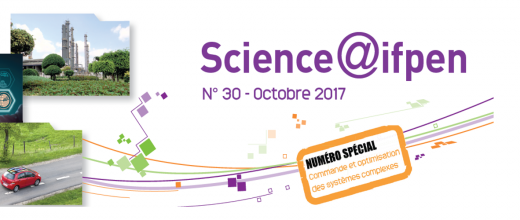
News in brief
Faster and just as good: the motto of adaptive methods
In the field of numerical simulation, a sufficiently accurate representation of the data associated with physical models requires, in general, a very large numerical grid that, despite existing

News in brief
More efficient flow simulations inspired by optimal control
Multiphase mixture (gas and liquid) flow simulation in porous media has a variety of applications in the field of geosciences a but also in the fields of engineering and chemical processes. In

News in brief
Pushing back the boundaries of parallelization
The numerical simulation and HPC a professions have benefited significantly from technological advances in the field of processors, particularly multi-core architectures, in recent decades. The

News in brief
Solving sparse linear systems on heterogeneous architectures
Numerical simulation is a strategic tool, complementary to experimental studies, used to gain a precise understanding of complex physical phenomena. With many simulation tools a, performance closely

News in brief
Life and death of soot: a model to control the phenomenon
Vehicle approval standards require increasingly high levels of engine performance (low fuel consumption and low emissions) over a broad working range. It is for this reason that new engine

News in brief
LES moves to rapid transients for cleaner powertrains
Gasoline direct injection engines emit soot particles during rapid transients. This still poorly understood phenomenon is taken into account during new WLTCs a, aimed at more accurately reproducing

News in brief
Energy in vehicles: we’ve got it under control!
In hybrid vehicles, onboard algorithms are aimed at splitting power between the various energy sources in order to minimize fuel consumption and/or pollutant emissions. This real-time management

News in brief
Floating wind turbine: increasing reliability in an “ocean of possibilities”
The optimal design of mechanical structures is hampered by the imperfect knowledge of the environmental conditions under which they will operate. The systematic incorporation of the resulting

News in brief
Optimized design of processes: enhanced efficiency, even with ethanol
The optimized design of processes is a complex but promising approach in terms of the expected benefits for the efficiency of industrial systems and their operating performance. It is an area that was

News in brief
Optimized placements for long lasting resources
In the face of declining oil and gas reserves, increasing the productivity of oil fields has become a technological challenge of the utmost importance. Accordingly, well positioning and trajectory are


